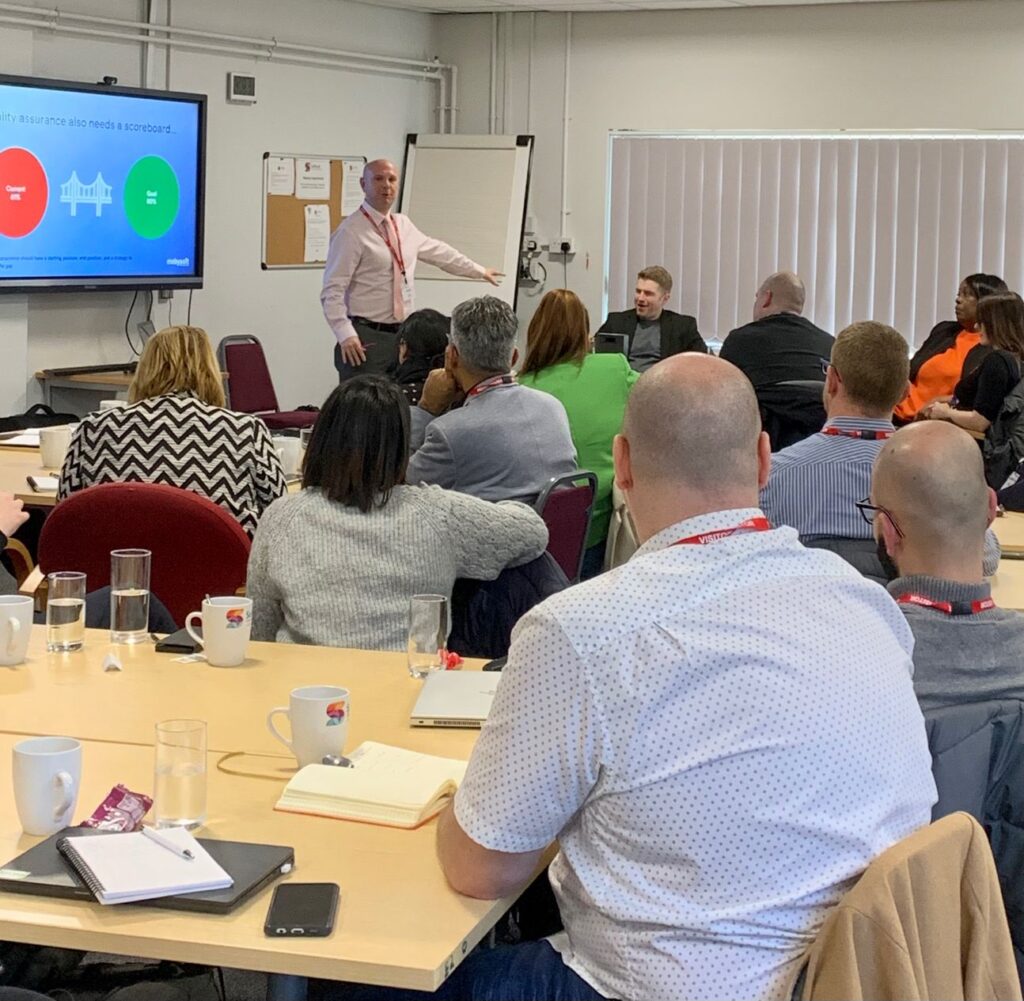Data & Assurance: Using Data & Insight to Provide Board Assurance
The social housing sector in the UK is facing unprecedented challenges. The economic downturn and increasing demand for affordable housing have put tremendous pressure on housing providers to ensure that they are making the most of their resources. The need to deliver efficient and effective services has never been more pressing, and housing associations are increasingly turning to data and insight to inform their decision-making.
However, with the growing use of predictive analytics in the social housing sector when it comes to strategic planning, it is essential to consider the potential impact on tenants. When relying on data to inform decisions it’s essential that data is accurate – social; landlords must ensure that systems that profile tenants are equitable, fair, and comply with data protection regulations. Read on as we explore further why boards of councils and HAs need to be aware of systems that profile tenants, the challenges and considerations resulting from such platforms, and best practices when implementing and using them…

Why Boards Should be Aware of Systems Profiling Tenant Behaviour
Social housing providers large and small have access to vast amounts of data on their tenants, spanning everything from rent arrears to repairs complaint history. By analysing this data, social landlords can identify patterns and trends that can help them to make informed decisions about how to allocate resources and provide services to their tenants.
However, profiling tenants can be intrusive and lead to inaccurate conclusions. For example, assuming that tenants who regularly miss rent payments are financially irresponsible may not be fair. It’s widely regarded within the sector that “robbing Peter to pay Paul” is a necessary skill for those on low or unstable incomes to make ends meet and a tenant who regularly makes late or part payments is not necessarily indicative of a financially irresponsible person, In fact, quite the opposite is often true and this type of payment behaviour can point to someone who is financially astute and adept at prioritising the most pressing obligations.
Furthermore, the use of profiling systems that rely on external data, such as credit agency information, to make judgments about tenant behaviour, can also be problematic. Credit agency information may not be relevant to a tenant’s ability to pay rent, adhere to arrangements or report maintenance issues in a timely or accurate manner. Social housing must, therefore, ensure that any profiling system they use is fair, accurate, and compliant with data protection regulations.

Challenges and Considerations
Implementing data profiling systems and harnessing predictive analytics within the social housing sector is not without its challenges. There are several considerations that boards must take into account before embarking on this journey.
Firstly, there is a risk of unconscious bias in the profiling process. This can lead to inaccurate conclusions and potentially discriminatory decisions against certain cohorts of tenants. Councils and HAs must, therefore, ensure that they have processes in place to mitigate any unconscious bias. These measures will vary from organisation to organisation but a key tenant would be to avoid negative financial profiling based on historic, most likely outmoded datasets.
Secondly, some systems may be more expensive than others. For example, some platforms rely on heavily automated processes but the data that they draw on to streamline caseloads and identify cases requiring contact resolution is not always complete. This can lead to a scattergun approach when surfacing cases to action and these platforms, whilst cheaper than a more precise solution, often do not offer the efficiencies they claim to (in terms of driving case resolution and better resource deployment).
As such, it is crucial to consider the long-term cost-benefit analysis of these solutions. While a cheaper system may seem like a good short-term solution, it may not be effective in the long term and could end up costing more in the long run.
Finally, social landlords must be mindful of the GDPR regulations. Profiling tenants without their explicit consent is likely to fall foul of GDPR regulations, and as such, boards must ensure that any systems implemented are GDPR compliant or risk legal action should data not be handled in the correct manner and consent gained ahead of rolling out such systems.

Best Practices When Implementing Predictive Analytics Systems
When implementing and using predictive analytics in any facet of an organisation, there are several best practices that housing providers can follow to ensure that they are fair, accurate, and compliant with data protection regulations.
Firstly, housing associations should, where possible, involve tenants in the development process. This is not to say that the tenants themselves should have input into the machinations of the system itself but ‘taking the temperature’ of the customer base – be it through focus groups or surveys – can help with roll-out and adoption and potentially identify any concerns or potential misapplications of such a platform ahead of roll-out. This can help to ensure that the system is fair and that it takes into account the needs and perspectives of all tenants.
Social landlords should always be transparent about the data they collect and how they use it. Putting in place a clear comms strategy and implementing a two-way dialogue with customers builds trust with tenants and ensure that they are aware of the systems in place, how their data is used, and how ultimately, the system is there to benefit them.
Perhaps most importantly, housing providers should ensure that they have robust processes in place to mitigate unconscious bias. This can include training staff covering proper use of the system and signposting unconscious bias, alongside ensuring that any predictive analytics-based platforms are regularly reviewed and updated to ensure that they remain fair and accurate.
If you or your organisation would like to learn more about how RentSense can help streamline efficiencies and demonstrate upturns in income collection, then book a RentTest by filling in our online form.
- Social Housing’s People Problem & How It Can Be Overcome - April 4, 2023
- Data & Assurance: Using Data & Insight to Provide Board Assurance - March 21, 2023
- Enabling Better Futures: The Importance of Understanding At-Risk Cohorts - March 7, 2023